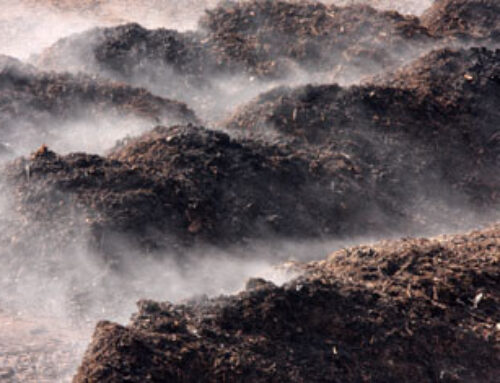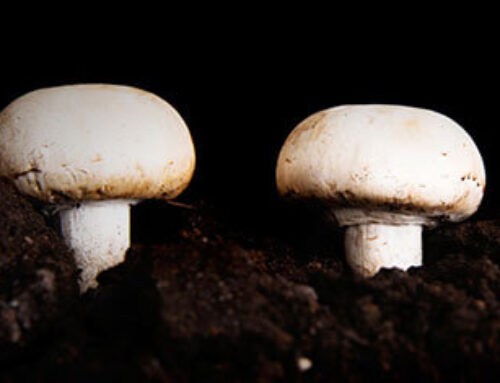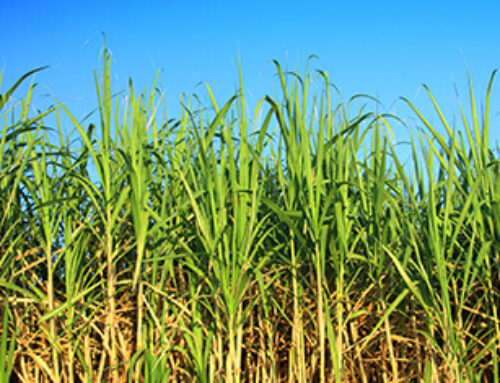Compost is the stable, hummus-like product resulting from the biological decomposition of organic matter such as grass clippings, leaves, manure, sawdust, and hedge trimmings under controlled conditions. In simple terms, compost is decomposed organic matter that can be used to help grow plants and keep soil healthy. Compost is a valuable soil amendment to add nutrients and goodness that are needed by plants for good growth and development.
It is time to get serious about composting organic waste. It is essential to come up with alternative methods for recovering waste that is renewable and sustainable. An important way to start is by bringing composting to more cities, businesses, and schools. With support from people who are already in favor of composting, we can educate others and begin building a long-lasting system.
Different Types of Compost
Compost can be classified into several types in accordance with its main raw materials:

Composting manure is an excellent manure management technique, useful for both backyard or small farm owners, and larger composting facilities. Via composting, the organic nitrogen contained within the initial fresh manure is converted to ammonium nitrogen by various microorganisms. Manure compost is usually used as a nutrient source for fruit, crops, and vegetables.
The most common sources of manure are cows, horses, sheep, pigs, goats, and poultry. (Another animal waste is generally not recommended as manure or fertilizer today.) Composting methods vary with the usage of finished compost and composting scales. Whatever technology one adopts, the C:N ratio needs to be noticed: as manure is nitrogen-rich materials, when composting, it should be mixed with a certain amount of carbon-rich organic materials (such as pine shavings from bedding, straw and hay from the animal barns, etc.) to keep the C:N ratio=25:1/30:1.
▽ Food Waste Compost
Food waste is becoming a serious economic and environmental issue in the world, taking the United States, for example, up to 40% of food goes uneaten according to the Natural Resources Defense Council. New York City made new rules stipulating that large businesses’ leftover food will no longer be destined for landfills. This further pushes the development of food waste compost fertilizer.
food scrap compost facility at street level in New York City
Food scrap compost has several benefits that include improving water holding capacity helping to reduce water loss and leaching in sandy soils, increasing infiltration and permeability of heavy soils reducing erosion and runoff, and improving soil structure, porosity, and density thus creating a better plant root environment.
▽ Municipal Solid Waste Compost
Municipal solid waste is suitable for composting because of the presence of a high percentage of biodegradable organic matter, acceptable moisture content and C/N ratio in the waste. Composting could turn large volumes of MSW into the material to be used as fertilizer, organic soil additive and crop substrate. It is tested that municipal solid waste compost, as an organic soil additive, can be used in agricultural production. It supplies the soil with a considerable amount of essential nutrients. With such benefits, MSW compost is frequently used in agriculture to meet crop N requirements and for the addition of organic matter.
Compared with effective management of organic waste, it is also essential to emphasize producing better quality MSW compost. This requires facilities to make modifications during their operation, particularly in the type of feedstock, front-end process, and municipal solid waste composting process.
The palm oil industry generates a large amount of biomass waste such as oil palm empty fruit bunch (EFB) and palm oil mill effluent (POME). Bio-composting the biomass with other organic materials not only offers oil palm plantations a cost-effective and environmentally-friendly solution to dispose of their waste but also provides another product with saleable value. Composting is an effective and fast treatment method to recycle palm oil waste and to produce EFB compost-a valuable agricultural input. The value of EFB compost as a fertilizer has been proven repeatedly, and it’s one of the best in the market, meaning that the by-products of the palm oil industry can also be sold; leading to even lower costs and helping mills maintain a competitive edge.
Mushroom Compost is the growing medium that results from the mushroom growing process. It is also a great organic amendment for enriching the soil used to grow fruits, vegetables, and even flowers.
Raw materials to make mushroom compost usually are agricultural materials, for example, cottonseed meal, cocoa shells, gypsum, poultry litter, hay, straw, horse bedding, etc. Additional materials like gypsum, peat moss, lime, soybean meal, and various other organic items may be added to the compost as well.
What can be Composted? What not?
Actually, we have posted an article “Compostable Materials around us – What to Compost” to list what materials can be composted and how to classify nitrogen-rich materials and carbon-rich ones.
Here we would like to list more valuable organic materials that can be composted in both home composting and commercial composting, and what cannot be composted.
Compostable:
◆ Carbon-rich – This includes materials such as Alfalfa meal and hay, Buckwheat straw or hulls, Cardboard, Cocoa hulls, Cornstalks, corn cobs, Dryer lint, Grape pomace (winery waste), Dried Grass clippings, Hedge Clippings, Hops (brewery waste), Sawdust and wood shavings, Nutshells, Oak leaves, Oat straw, Paper, Peanut hulls, Peat moss, Pine needles and cones, Tea leaves, Vetch, Weeds, Wheat straw
◆ Nitrogen-rich – This includes materials such as Algae, seaweed, and lake moss, Apple pomace (cider press waste), Banana peels, Clover, Coffee grounds (and filters), Cotton Bur, Cowpeas, Feathers, Flowers, Fruit peels (not limes), Green Grass clippings, Hay, Leather (leather waste), Manure from herbivores (cow, horse, pig, sheep, chicken, rabbit), Vegetable peels and scraps
◆ Neutral – Ashes (wood, not coal), Beverages, kitchen rinse water, Eggshells,
Un-compostable:
Black walnut tree leaves or twigs;
Coal or charcoal ash;
Dairy products (e.g., butter, milk, sour cream, yogurt) and eggs;
Diseased or insect-ridden plants;
Fats, grease, lard, or oils;
Meat or fish bones and scraps;
Pet wastes (e.g., dog or cat feces, soiled cat litter);
Yard trimmings are treated with chemical pesticides.
Home Composting & Commercial Composting
Home Composting: due to lower volumes of waste collected from households, home composting may lead to reduced waste management fees, and it produces compost for private gardening use. However, not all household waste suit for home composting. It is recommended to separately collect organic household waste with a dedicated waste collection system and subsequent treatment in industrial composting or AD plants to produce quality compost.
| Compostable items in home composting | Items not suitable for home-composting |
| shredded paper, fresh green plant trimmings, rabbit food (alfalfa), leaves, vegetable and fruit scraps, coffee, eggshells, flowers, vacuum dust, cardboard | meat and fish, grease, herbicide or pesticide-treated plants, magnolia leaves and pine needles (very slow), coal ash (wood ash is OK), diseased plants, invasive weeds, grass clippings, dairy products, pet droppings, synthetic chemicals, metals, plastic, and glass |
Commercial Composting: Many organic wastes, like meat or bio-plastics (including compostable foodservice products), can only be composted under ideal composting conditions. Therefore, the composting of the above-mentioned non-compostable materials on a household scale, such as meat, fish, and pine needles, can be taken place in commercial composting plants, where controlled conditions (e.g. temperature, aeration, humidity) are given. Home-composting should only be considered as an additional option for the treatment of organic waste, especially for garden waste. Commercial compost facilities mainly process organic material from homes, apartments, condominiums, and businesses.
Commercial composting methods include in-vessel composting, turned windrow composting, and aerated static pile composting.
—In-vessel composting:
a process in which compostable material is enclosed in a drum, silo, bin, tunnel, reactor, or other containers for the purpose of producing compost.
High capital investment, usually municipal or governmental systems. Short compost cycle.
Raw materials: Municipal Solid Waste, Biosolids, Manure, Agricultural Crops and Food Wastes, Industrial Waste, etc.
The turned windrow composting is the fastest way to make compost on a large scale. Organic solid wastes are dumped on open land in windrows and turned 2-3 times per week to break up organic materials, re-establish porosity, and re-wet the compost. The complete process may take 4 weeks.
Lower capital investment lends itself to custom blends, and lower capacity restraints.
—Aerated static pile composting:
This composting method provides adequate oxygen and control of pile temperature by adjusting the amount and direction of airflow. It is suitable for a relatively homogenous mix of organic waste and works well for larger quantity generators of yard trimmings and compostable municipal solid waste (e.g., food scraps, paper products), such as local governments, landscapers, or farms.
High capital investment, low labor requirements, questionable results
Why Compost?
We can conclude the benefits of compost as:
★ improving soil structure, root growth, and soil water-holding capacities.
★ holding its nutrients in the organic or slow-release form.
★ aiding in necessary microbial activity in the soil etc.
★ Compost helps to recycle animal manure, agricultural waste, food waste, and municipal solid waste, and reduces landfill waste, to a great extent, composting prevents organic waste from releasing methane in the landfill.
★ Compost delivers essential nutrients over an extended period of time for optimal plant growth. There are so many beneficial microorganisms in compost, which help prevent plant disease and break down organic matter.



 ▽
▽ 




